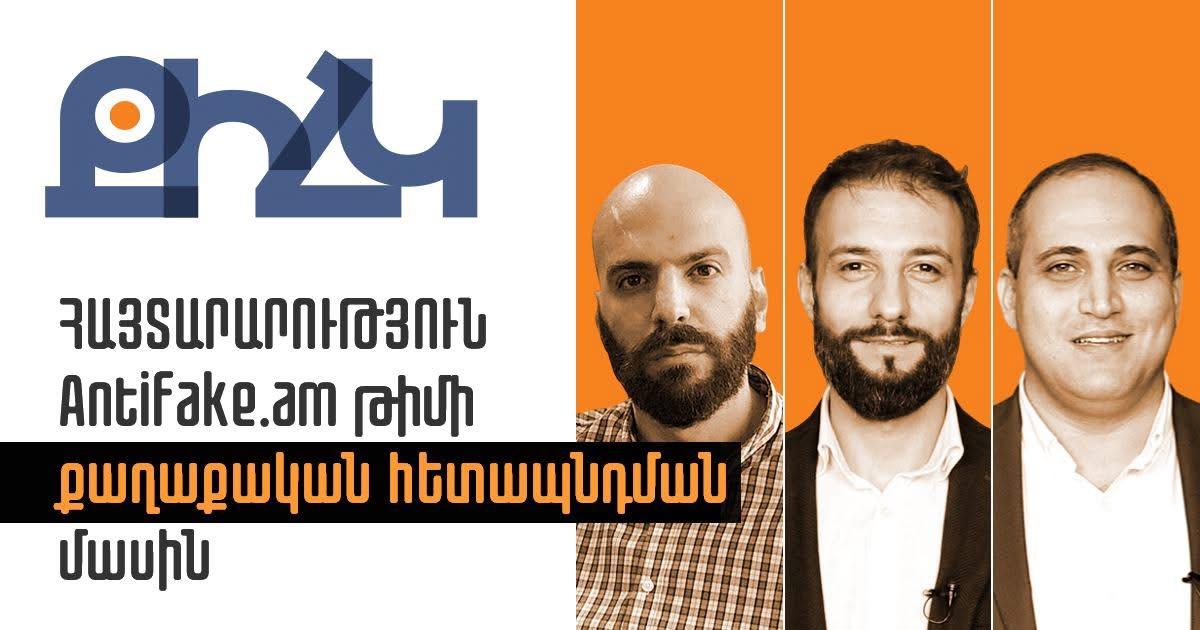The detention of Saghatelyan, Samsonyan, and Fidanyan constitutes a textbook example of political persecution
Armenian Center for Political rights issued a statement regarding the new political persecution of Antifake.am team.
V. Saghatelyan and N. Samsonyan host the Imnemnimi podcast, which has a strong opposition stance. The podcast is broadcast via the social media platforms of the Antifake.am website.
On November 13, the podcasters were arrested and subsequently detained for two months under charges of “hooliganism”. They are prosecuted for using insulting language during an episode of their podcast against Alen Simonyan, the speaker of the National Assembly of the RA. The insults were a direct response to A. Simonyan’s similar expressions targeting the podcasters earlier.
Despite the decriminalization of insults in Armenia, charges of “hooliganism” are used to circumvent the decriminalization. The podcasters issued a clear disclaimer that profane language may be used during the episode, which rules out “hooliganism”, since the element of “overtly disrespectful attitude toward society” is a mandatory part of the corpus delicti.
National security officers conducted a search at the Antifake’s premises and seized all technical equipment belonging to the podcasters, including cameras, microphones, computers, and data storage devices. Antifake journalist Davit Fidanyan was also arrested during the search.
The detention of Saghatelyan, Samsonyan, and Fidanyan constitutes a textbook example of political persecution. The entire process lacks any legal basis and is therefore driven by the political views of the individuals involved, as well as by Antifake's opposition stance. Beyond violating their rights to liberty and freedom of expression under Articles 5 and 10 of the European Convention on Human Rights, the authorities have also breached Article 18, which prohibits restrictions on rights for purposes not prescribed by the Convention.
Details and reasoning are available in the statement.
https://drive.google.com/file/d/1b-kuEpHJui1heNOgj5yHz0mtpvfn9-H5/view?usp=sharing
The English translation of this statement has been submitted to relevant international human rights bodies, including the Council of Europe Commissioner for Human Rights, the OSCE/ODIHR Director, OSCE Representative on Freedom of the Media and the UN Special Rapporteur on the promotion and protection of the right to freedom of opinion and expression



